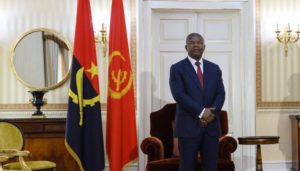
A restructuring of Angolan debt this year is becoming more likely as the country’s foreign currency reserves dwindle.
China is reluctant to write down loans to Angola, but realises its options are narrowing, says Mark Bohlund, senior research analyst at Redd Intelligence in London. “Leaving it until later will increase the size of the haircut” that China has to take, he says.
There’s little sign of President João Lourenço being able to put the country’s finances on a sustainable footing. The budget approved by parliament in December projects 2021 government spending will increase by about 20%. And diversifying Angola’s economy away from reliance on oil, if it can ever be done, will be a long-term process.
READ MORE Zambia’s default leaves Angola as Africa’s most exposed borrower
Redd Intelligence estimates that about three quarters of Angola’s $20bn debt to China at the end of 2019 was owed to the China Development Bank (CDB). At Beijing’s insistence, the CDB is still being classed as a commercial rather than a bilateral creditor. Bohlund sees that as an “untenable” position that China will have to change.
Angola’s foreign currency reserves fell below $10bn in 2020, from a peak of $34bn in April 2013. A continuance of that trend is likely to prompt China’s position to shift away from debt deferrals to an acceptance of the need for restructuring, says Bohlund. “It’s increasingly likely that debt restructuring will happen this year.”
- The Paris Club of creditors agreed on 7 January to extend relief on debt service due from Angola to cover the first half of this year. Such a piecemeal step is no more than “kicking the can down the road,” says Bohlund.
- The IMF and World Bank have strongly expressed their preference for distressed countries to enter into debt restructuring at an earlier stage than in previous crises, he adds.
- Allowing payments to commercial creditors to continue, with a private UK-registered creditor scheduled to be paid $1.1b in February, will mean Angola’s currency reserves continue to fall, says Bohlund.
Forced Sellers
After the country’s long civil war ended in 2002, Angolan reluctance to accept the conditions attached to Western finance led to an influx of Chinese loans. That has been a jump from the frying pan to the fire, with the country obliged to sell more of its major asset oil when the price falls.
The Angolan government gets Chinese credit facilities backed by petroleum-based guarantees to finance investments. This doesn’t mean that Angola gets its hands on cash: the funds are used for Chinese public enterprises to develop infrastructure and industrial projects.
Research led by Liviu Stelian Begu at the Bucharest University of Economic Studies calculates that since 2010, almost half of Angola’s exported petroleum has gone to China. As repayments of Chinese loans are based on the oil price at the time of the agreement, Angola has to export more to China when its value drops, writes Begu.
Angola doesn’t even benefit in terms of employment, as Chinese construction companies build infrastructure projects mostly with their own employees.
Commercial creditors are likely to resist restructuring, hoping for a post-COVID oil price recovery and a resumption of exploration. That’s likely to be grasping at straws.
- According to Gerrit van Rooyen of NKC Africa Economics in South Africa, insufficient new oil projects are being developed to replace Angola’s depleting oil wells.
- NKC estimates that domestic oil production fell from 1.39 million bpd in 2019 to 1.30 million bpd in 2020.
Angola has offshore and deep-water oil projects which could be developed, but these will be harder to execute if oil prices stay low. The catch is that lower-for-longer oil would leave Angola needing to sell more to China just to stand still.
Bottom line
Angola’s private creditors are likely to have to bite the bullet sooner rather than later.
https://www.theafricareport.com/57860/angola-may-be-forced-into-debt-restructuring-in-2021/


